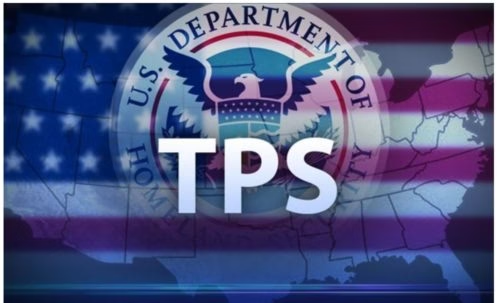Venezuelan immigrants with Temporary Protected Status (TPS) find themselves in turmoil. And Haitians have every reason to be concerned.
In a decision with significant repercussions, delivered this Monday, the United States Supreme Court validated the Trump administration’s request to suspend, at least temporarily, deportation protections granted to approximately 350,000 Venezuelan nationals benefiting from the TPS program.
As is often the case with emergency decisions, the order was issued without explanation or signature. Only Justice Ketanji Brown Jackson publicly expressed her opposition, stating that she “would have denied the government’s request,” according to the New York Times.
This decision paves the way for resuming deportations while leaving affected individuals the possibility to individually challenge certain measures, particularly the revocation of their work permits or departure orders.
The case originated last February when Kristi Noem, Secretary of Homeland Security, canceled an 18-month TPS extension granted under the Biden administration. Plaintiffs then filed lawsuits, arguing that this decision violated administrative rules and was motivated by discriminatory considerations.
In March, Federal Judge Edward M. Chen of the Northern District of California had suspended the decision, finding that the plaintiffs had a strong likelihood of proving that Ms. Noem’s action was “unlawful, arbitrary, capricious, and motivated by unconstitutional animus.” He emphasized that ending the program risked causing “irreparable harm” to hundreds of thousands of people by disrupting their lives, families, and livelihoods — not to mention the major economic repercussions and consequences for public health and safety.
The Trump administration appealed, but the Ninth Circuit Court of Appeals upheld Judge Chen’s decision. The government then turned to the Supreme Court, arguing that the law establishing TPS prohibited any judicial intervention in decisions regarding designation or termination of status. “There is no judicial review available for decisions about designation, extension, or termination of TPS status,” argued D. John Sauer, Solicitor General.
However, Judge Chen maintained that this clause did not prevent him from evaluating whether Ms. Noem had acted within her legal authority. The plaintiffs’ attorneys added that “the law never grants the Secretary the power to revoke an already decided extension,” warning against an interpretation that would render courts powerless against clearly illegal decisions.
The Supreme Court’s decision remains temporary. It does not constitute a final judgment on the merits of the dispute. Little information has been made public regarding this unsigned order.
Next July, Judge Chen must also rule on a similar case concerning Haitian nationals benefiting from TPS. Several organizations have taken legal action to challenge the Trump administration’s decision to shorten the TPS validity period for Haitians by six months, originally scheduled until March 2026.
It’s important to note that the Supreme Court’s green light to the Trump administration in the Venezuelan case doesn’t necessarily mean a similar decision will be made regarding Haitians. Moreover, the legal context differs: in the Venezuelan case, it involved a status termination, while in the Haitian case, the courts will need to rule on a mere reduction in duration.
Created in 1990 under George H.W. Bush’s administration, TPS allows nationals from countries experiencing natural disasters, armed conflicts, or other major crises to legally live and work in the United States.
This decision aligns with current President Donald Trump’s commitment to fulfill one of his key campaign promises: significantly reducing immigration. He has notably attempted to terminate TPS for several nationalities, including Salvadorans, Haitians, and Hondurans.
The Supreme Court has previously been called upon to make emergency decisions in similar cases, such as the revocation of the humanitarian parole program and the ultimately canceled deportation of a man to El Salvador.
“Today’s verdict clearly illustrates the Court’s support for executive prerogatives in immigration matters,” observes Adam Liptak, Supreme Court specialist for the New York Times. However, this orientation does not preclude the continuation of individual legal battles that will continue to influence U.S. immigration policy.







